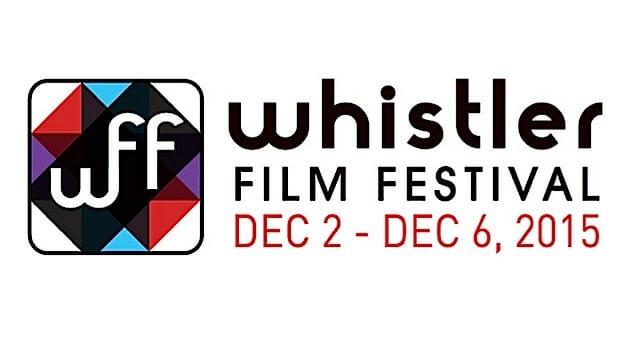Canada’s “Coolest” Film Festival
A look at the recent Whistler Film Festival

Every year as I make my annual pilgrimage to the Whistler Film Festival in British Columbia, I vow to take up some wintry pursuit such as skiing (or bobsled racing!), in between screenings, but sure enough, each time I get easily sidetracked by the films, industry panels, parties and misadventures. Can you really blame me? One of the festival’s virtues (and vices) is how casual it all feels, even as it manages to attract industry leaders like Voltage’s Nicolas Chartier and Cineplex’s Michael Kennedy.
Whistler, known as a perennial home to ski bunnies, mustachioed muscular men, and a disproportionate number of Australians, has been home to the Whistler Film Festival for 15 years. This December, the festival opened its five days of festivities with a gala screening (and Canadian premiere) of Oscar contender Carol, written by Phyllis Nagy, herself one of last year’s Variety’s 10 Screenwriters to Watch.
The festival often feels more like a retreat with your industry friends than a serious industry gathering—one minute you’re listening to Chartier talk about movie piracy, the next you’re sipping vodka off of a ski in a -30c room. Still, deals and meetings do happen and great movies do get shown—the kicker is that you don’t have to wait in endless lines to see them.
That’s a big part of the festival’s attraction and why it has been growing each year, attracting bigger movie titles and brighter luminaries. (Recent guests include Ivan Reitman, Melissa Leo, Donald Sutherland, Richard Dreyfuss, Rashida Jones and Daniel Radcliffe.)
This year, the festival featured three more honorees of note: Robert Carlyle, who was also having the Canadian premiere of his BAFTA-award winning directorial debut, The Legend of Barney Thompson; Kiefer Sutherland whose Western, Forsaken, has him acting side-by-side with father Donald; and Bruce Greenwood who—besides excelling at being very funny all whilst maintaining a presidential decorum—was starring as a curmudgeonly British theatre director in the world premiere of Carl Bessai’s Rehearsal at the festival. Greenwood received the festival’s Career Achievement Award, and all regaled audiences with stories.
Under programmer Paul Gratton’s leadership, the festival has ambitions for becoming a mini-Sundance, particularly for Canadian film, which accounted for about half of WFF’s selections. Those selections were an eclectic mix, ranging from films like Legend, Trumbo, A Royal Night, Born to be Blue, and Lady in the Van to the likes of cult-filmmaker Frank Henenlotter’s first non-genre film, Chasing Banksy, to Gaspar Noé’s intensely sexual Love in 3D. There was even a feature film made entirely by a single person, Daniel Robinson’s Nestor. And filmmakers can even experiment in how they present their films. Case in point, Ingrid Veninger, a spirited DIY queen of indie filmmaking if ever there was one, had a different musician do an improvised live performance of the score for her film, He Hated Pigeons each night.
-

-

-

-

-

-

-

-

-

-

-

-

-

-

-

-

-

-

-

-

-

-

-

-

-

-

-

-

-

-

-

-

-

-

-

-

-

-

-

-








































